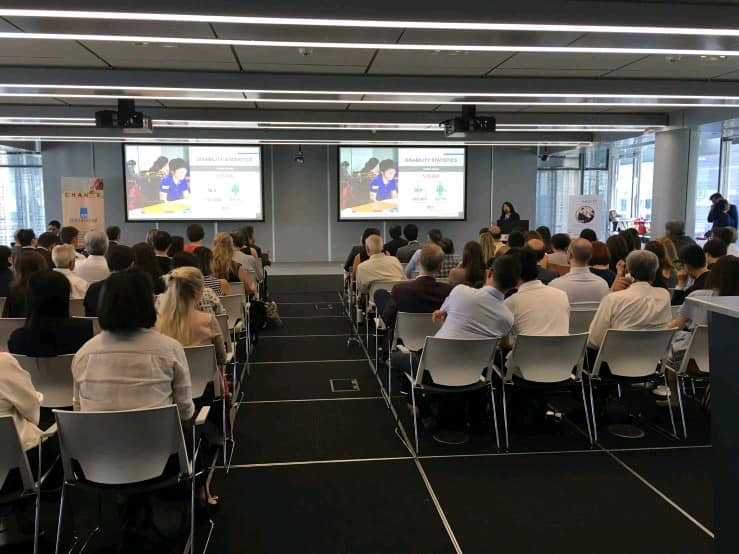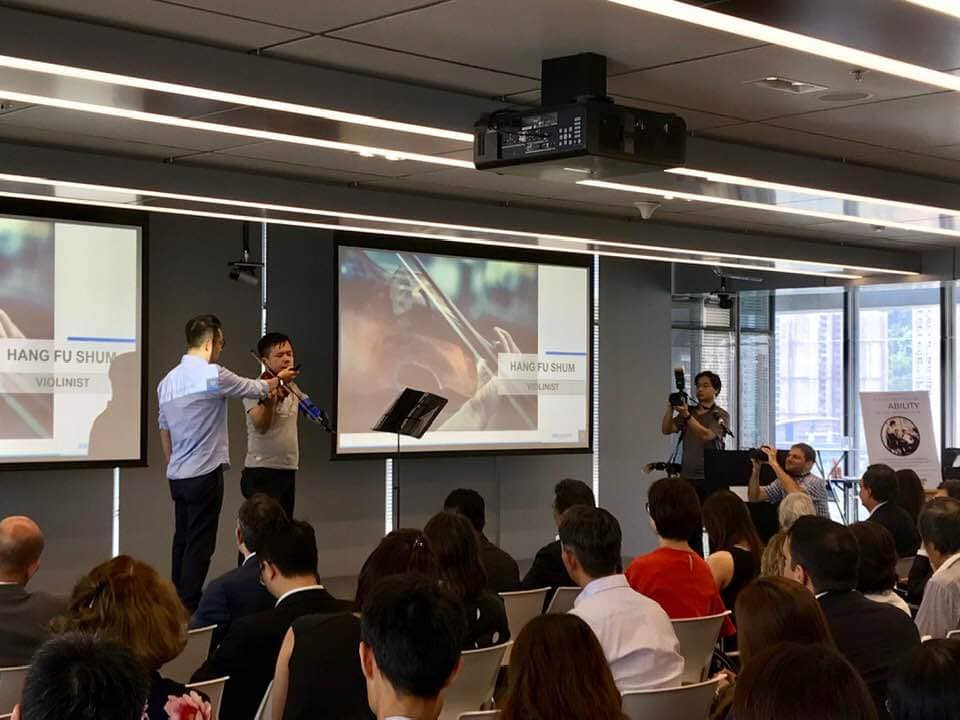In most schools with a progressive curriculum and solid ethics, students living with disabilities are welcomed, their needs accommodated, and encouraged to participate as fully as they can in the life of the school. However, once they graduate, many feel thrown into a world where diverse institutions neither have nor care to have the kind of infrastructure, tools, or interpersonal understanding and emotional intelligence that their alma maters provided. In Hong Kong alone, of the approximately 578,600 people with disabilities, only 39.1 per cent are economically active, while 80 per cent are on social welfare.
Where there are terminal disabilities, the priority is maintaining quality of life. Most people with physical or mental conditions that are manageable, however, tend to want to work in some capacity, contribute to society, but most importantly, cultivate their passions. They want to make art and express their inner being. In other words, disabled people do not just stop needing understanding upon entering the workplace. Indeed, they need it more than ever.
Last month, on the 22nd, I attended an event hosted by a consultancy that prides itself on a mission public service. SENsational, founded by Faride Shroff, organized a corporate awareness event with WeWork called “Showcasing Talent with Disability.” “Diff-abilities,” a spin on the term differently abled persons, is how Ms. Shroff frames these conditions as she advises companies on how to employ more people living with disabilities. These companies range from SMEs to multinationals and banks like HSBC (where the event was held). Undoubtedly, the highlights of the day were the artistic performances, which ranged from violin (by a man with a replacement arm) to interpretive dance. On display were also photography and artworks. The performances were not just competent and serious; they were deeply touching and affective because of the conditions these men and women were living with. I am proud and inspired to report that they had the support of all the attendees, who clapped and cheered as they would any star.

Credit to where credit is due: thanks to expanding departments in HR or hiring that can add additional layers of nuance to recruitment policy, it seems to often be multinationals, many in finance or law, that are taking the lead in employing the disabled. The event has had me reflecting on how those of us in religious organizations, journalism, and even specifically the religious press, could make steps forward when it comes to employing disabled people. We should be the most open of all, but very often the calling of employing differently abled individuals does not even have a lesser place on our checklist of priorities when setting out on a religious project or building a newsroom team.
I think we must, like so many in societies like Hong Kong, begin with a change in mentality, a re-orienting of mindsets. We must commit seriously to the idea of brainstorming openings and job opportunities (running the full gamut from internships to full-time careers) that might be suitable for people with diverse disabilities. Consultancies like SENsational are instrumental in advising companies and organizations on aligning such a goal with the job market. We must also emphasize the contributions disabled people themselves can make to the religious or journalistic institution. This is not a gesture of pity or a PR move. We look at the disabled as equals in every meaningful sense of the word, with their own agency, thoughts, and hopes, and ask the simple question of, “Why not learn from them?”
It is precisely those who we perhaps have been conditioned to see as different that can teach us a more enlightened perspective about the world, and a purer vision of the human condition.

